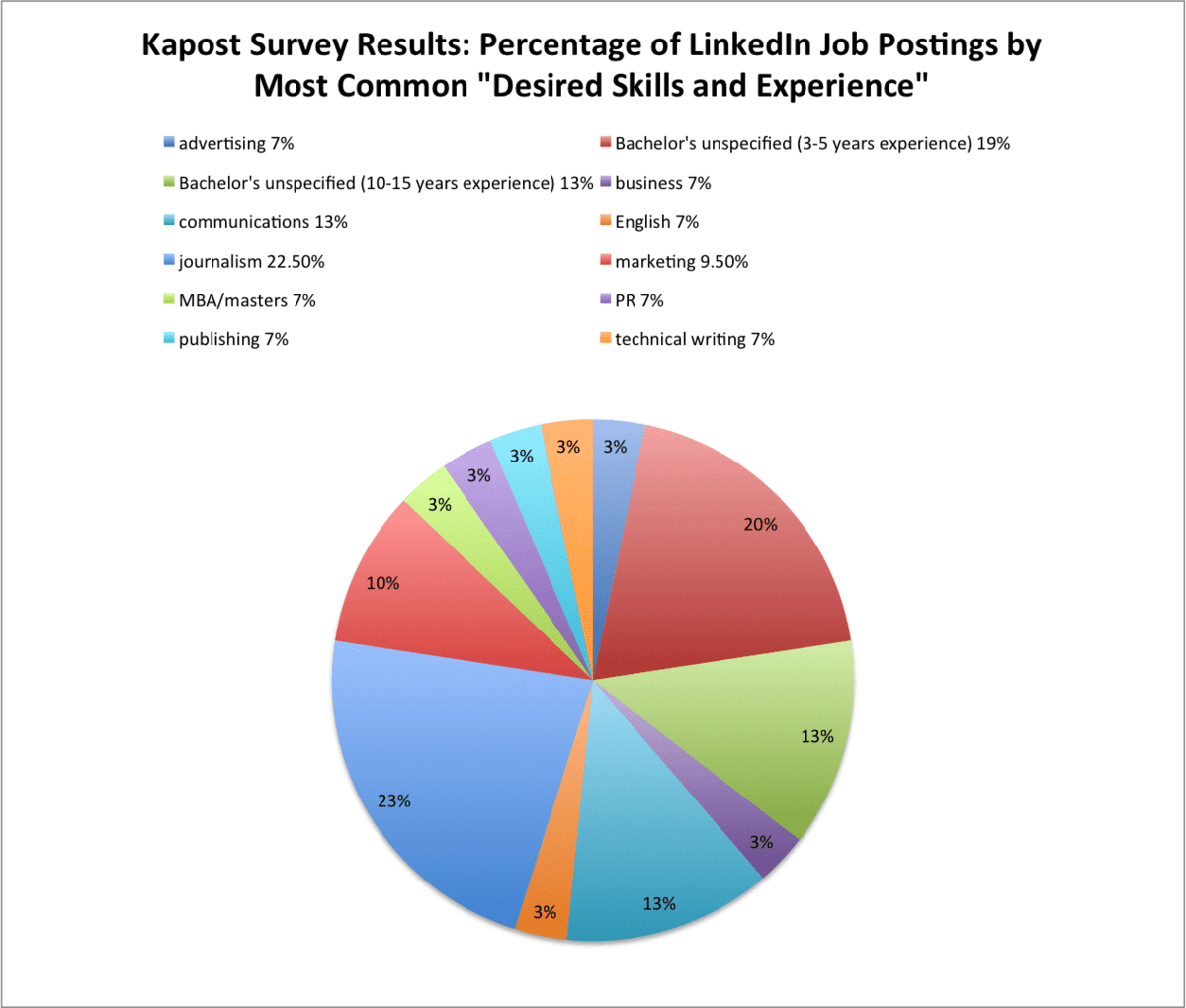
Image Credit: MDGovpics
Is there one degree that stands above the rest when it comes to hiring great content marketers? The short answer is, no.
When filling a content marketing position, hiring managers don’t really care what you studied in college. Or at least, they can’t agree on a preferred degree. But the increasing need for content-related professionals has colleges and universities reconfiguring curriculum to better serve professional demand. This leads me to think that certain degrees or majors will be associated with a content career in the near future.
As for now though, requirements sought by content marketing hiring teams are diverse and varying, with qualifying criteria ranging from 15+ years of marketing experience to the oh-so-vague “has a creative writing background,” according to a recent survey of 20 content marketing positions on LinkedIn. Though there’s a tendency toward journalism majors and unspecified majors with “work-related experience,” when you consider that 10+ majors/degrees are referenced in just 20 job postings, it’s clear that a variety of degrees support the content marketing skill set.

Survey results from 20 surveyed job postings relating to “content marketing” conducted by Kapost in January, 2014.
As it seems, it doesn’t matter whether you’re a 10-year digital marketing veteran or an aspiring writer. In the eyes of most hiring managers, what matters most is the ability to produce content. A lot of it. And it’s gotta be good.
“To be honest, the major itself doesn’t really matter,” says Jay Acunzo, senior content manager at HubSpot, a SaaS marketing company. “It’s more about the work they can produce.”
Acunzo reflects what appears to be a ubiquitous notion: no typical college degree aligns exactly with modern marketing, where content reigns and “content creators” are the glittery court.
So for those of you reading this article looking for advice, if you missed it, here it is again: (1) Produce. (2) A lot. (3) Really good stuff.
As marketers, we all understand in general who the content marketer is. He or she is creative, and combines the art of storytelling with marketing savvy to attract new business.
We just don’t agree which college degree best hones those skills.
The fact is, traditional marketing roles are being superseded by new definitions of marketing success. Marketers are no longer rewarded based on hard-to-track goals such as increasing positive brand sentiment. They are now responsible for the top of the sales funnel, and held to meeting lead generation quotas much like their sales counterparts. It’s a new playing field for marketers, one that’s constantly adjusting to new digital trends and technology. And, as we’ve seen, one that’s not tied to an existing college major.
“Every intern we’ve ever had says their degrees are nothing like modern marketing,” HubSpot’s Acunzo says.
But some colleges are rising to the challenge, offering new courses and curriculum that better reflect the actual marketing world.
Rising to the Challenge
University of Colorado professor, Paul Voakes, who formerly served as the Dean of the CU Journalism School, says they’ve started integrating content marketing components into student curriculum, specifically in courses related to journalism “ethics” and “public relations.”
Michigan State University offers a “Professional Writing” degree which helps students develop careers in content management by teaching rhetoric, grammar, and how to identify audiences. And Rutgers offers a “Virtual Mini-MBA” in Digital Marketing via an online course that aims to present the “new business model for push and pull marketing.” And those are just a few programs to mention.
The curriculum overhaul is kind of an inevitable evolution to academia. Nine out of ten companies use some form of content marketing, and the number of content-related professionals on LinkedIn has risen steadily for two years, climbing 33% since October 2011. A quick job search reveals the number of “content marketing” positions is catching up to the number of “sales director” positions (6,319 jobs vs. 8,670 jobs, respectively). Institutions are starting to meet the demands of modern career paths and, appropriately, they’re doing it in non-traditional ways. For example, they’re offering virtual classes and certificates vs. actual degrees.

As for now, all I can say for certain is that the behemoth that content has become has opened doors for all sorts of people with many types of backgrounds and educational training.
But as the industry continues to shift, it’s my guess that courses or certificates related specifically to content marketing are not far behind.
Get Involved with Understanding Our Industry
We’d love to hear more about your hiring process. Take this quick, one-question survey to tell us which college degree, if any, your hiring staff is looking for when hiring content marketers.
And I’d love to hear your feedback. Leave a comment or find me @JeanWrites.
Find the Best People for the Job
Check out what we’ve found to be the best things to look for when hiring for content marketing.

